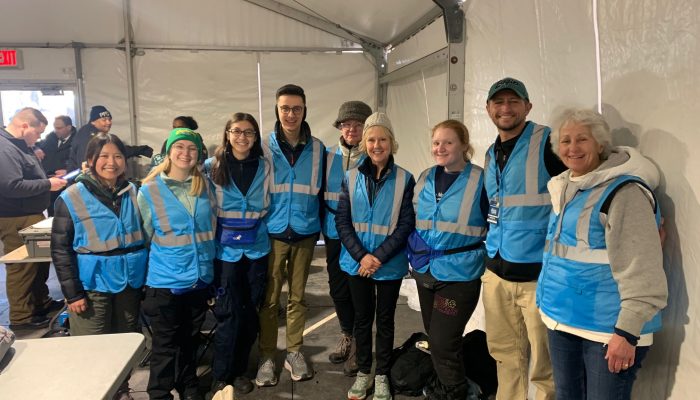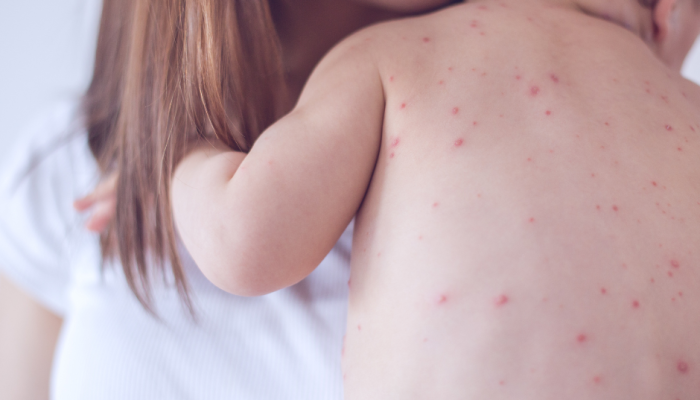Bird flu has been making headlines lately. We’ve seen the first human death in the U.S., large bird die-offs in Pennsylvania, and the first bird with bird flu in Philadelphia. But don’t panic — the risk to most people is still low. Here’s a quick update on where things stand and what you should know.
Bird flu in Pennsylvania and Philadelphia
The current bird flu outbreak — also called avian influenza, H5N1, or HPAI — started in February 2022 and has picked up since late 2024. So far, no people, but dozens of commercial poultry and backyard flocks and many wild birds have individually tested positive in Pennsylvania. Some of those wild birds were found in Philadelphia.
What’s the risk for Philadelphians?
If you don’t work closely with chickens, other poultry, dairy cows, or wild birds, your risk of getting bird flu is low. Still, it’s best to avoid direct contact with these animals to stay safe.
Human cases of bird flu
So far, 70 people in the U.S. have tested positive for bird flu in 13 states. Pennsylvania has not had any cases. Most infections happened in farm workers who were in close contact with poultry or dairy cows. A few backyard chicken owners and two children have also gotten sick. Most cases have been mild, with symptoms like pink eye and, in some cases, fever or mild respiratory issues. Two people required hospital care but have since recovered.
In January 2025, a backyard chicken owner in Louisiana died after being infected, likely due to exposure to his backyard flock and wild birds, plus other health conditions that made him more vulnerable. This is the only fatal case in the U.S. so far.
The first U.S. human case was detected in 2022.
Bird flu in dairy cows
Bird flu has been found in over 1,000 dairy herds across 17 states. Fortunately, cows don’t get very sick from the virus and can return to producing milk after a few weeks. Pasteurized milk is safe to drink, but raw, unpasteurized milk can contain live viruses and harmful bacteria. Avoid drinking raw milk to protect yourself.
No cows raised for beef have tested positive for bird flu. Properly cooked beef is safe to eat.
Bird flu in chickens
Bird flu is deadly to poultry, including chickens, ducks, and turkeys. More than 1,500 total commercial and backyard flocks have tested positive for bird flu across all 50 states and Puerto Rico. When a flock tests positive, all birds must be culled (killed) to stop the spread.
The bird flu outbreak has also led to higher egg and poultry prices. Because infected flocks have to be culled, supply is lower and prices have gone up. The virus hasn’t been detected in eggs and chicken purchased in grocery stores. Chicken and eggs in grocery stores are still safe to eat as long as they’re cooked to proper temperatures.
Bird flu in other animals
Wild birds, like geese and ducks, are common carriers of bird flu virus. Bird flu has been detected in wild birds across all 50 states and Puerto Rico.
Bird flu has also affected other mammals, including seals, foxes, and skunks, ranging from sickness to mass die-offs. The virus has killed tens of thousands of elephant seals in Argentina and over half of a tern colony in Washington State.
Cats—both domestic and wild—have also been affected. Dozens of domestic cats have become sick or died from eating raw pet food or raw, unpasteurized milk contaminated by the virus. Mountain lions and bobcats have tested positive in several states after likely eating infected birds.
How the Health Department is responding
The Philadelphia Department of Public Health (PDPH) is keeping a close eye on bird flu. We work with state and local public health and animal health agencies to monitor human cases and control the spread. PDPH is also doing outreach in affected areas and providing resources to help the public stay informed.
Bird flu is still around, but the risk to the general public remains low. Stay informed, take precautions, and check out PDPH’s resources to keep yourself, your family, and your pets safe.




